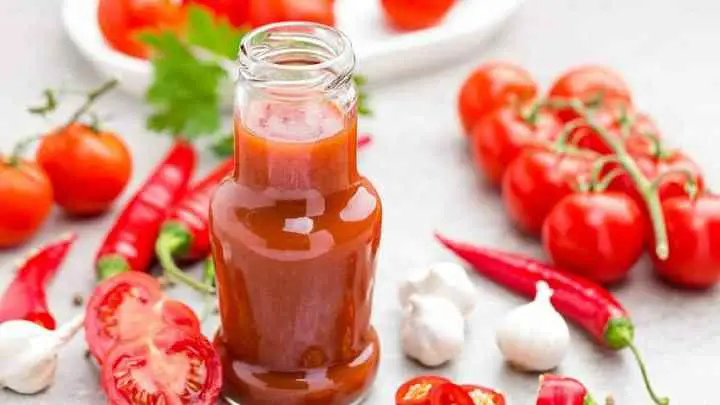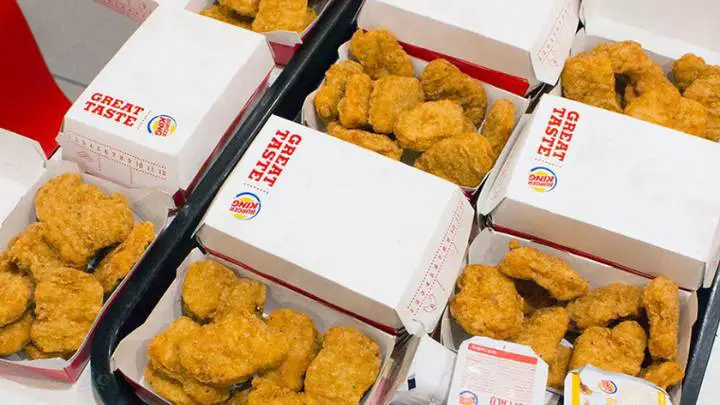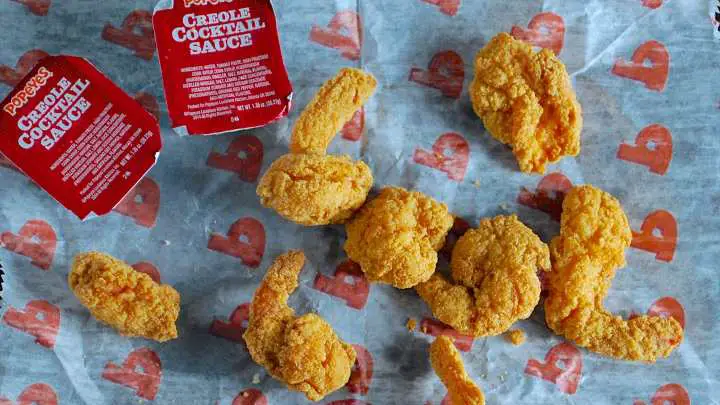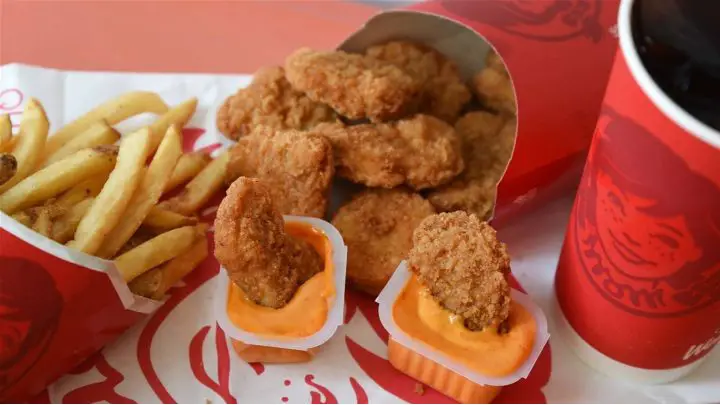If you’ve ever wondered if hot sauce goes bad, you’re not alone. Many people wonder if this condiment goes bad after a certain amount of time or if it lasts forever.
Unfortunately, hot sauce does go bad. But luckily for us, it can keep for years without showing signs of spoilage.
This article will tell you how long hot sauce lasts, how to know if it’s bad, how to store it properly, and much more. Let’s start by taking a quick look at what this condiment is and why it’s so popular.
What Is Hot Sauce?
Hot sauce is a condiment made from peppers, vinegar, garlic, and other spices. The peppers used in this sauce are chili peppers, but some brands use other peppers like habanero peppers.
Hot sauce can be used on foods to add flavor and spice to foods. You can use it as an ingredient in cooking or add it to dishes after they’re cooked for extra flavor and spice.
Hot sauces are typically sold in glass jars or bottles to allow consumers to see what’s inside the container before buying it. You’ll find them in the spice section at most grocery stores and supermarkets.
SEE: Here’s What You Need to Know About the Shelf Life of Worcestershire Sauce
Does Hot Sauce Go Bad?
The answer is yes. The good news, however, is that most hot sauces can last for a couple of years if unopened. Once opened, hot sauce will begin to lose its freshness within a few months or so.
This is because it contains unstable compounds like capsaicin that break down easily when exposed to light, air, and heat. If you want your sauce to last longer, put it in an airtight container and store it in a dry place away from sunlight and heat sources like stoves and ovens.
Freezing and refrigerating also preserves hot sauces, but this doesn’t work with all varieties. Some brands may separate in the bottle, while others may change their texture slightly after being frozen or refrigerated.
What Is the Shelf Life of Hot Sauce?
The shelf life of hot sauce is pretty long. It will keep at room temperature for about one year past its best-by date and in the refrigerator or freezer for about 2-3 years past its best-by date.
Once opened, hot sauce will last for about six months at room temperature, nine months in the refrigerator, and 12 months in the freezer.
It’s also important to know that some types of hot sauce have a longer shelf life than others. For example, hot sauces made with vinegar will last longer than ones made with lemon juice or lime juice.
This is because vinegar is more acidic and therefore preserves better than other ingredients, like lemon juice and lime juice.
SEE: How Long Does Soy Sauce Last & Can Put It In Your Freezer
Can You Eat Expired Hot Sauce?
Yes, you can. It’s not dangerous to eat expired hot sauce — just don’t expect it to be as flavorful as when you first opened it.
The expiration date on a bottle of hot sauce is an indicator of when the manufacturer expects the flavor to degrade. It does not necessarily mean that it will become toxic or harmful.
As long as you store it properly, your sauce should be safe to consume well after its expiration date has passed. If you’re concerned about using an expired sauce, check its color and smell first. If it has changed colors or smells off, don’t use it.
How to Tell if Hot Sauce Is Bad
Look at the expiration date
The first thing you should do when trying to determine if your sauce has gone bad is to look at the expiration date. In most cases, though, even if your sauce is past its expiration date, it will still taste fine and be safe for consumption.
However, if you want to be safe, discard any sauce past its expiration date — especially if it fails any of the tests below.
Check for mold or mildew
According to Mayo Clinic, mold and mildew grow on many types of foods, including hot sauces. If there is any visible sign of mold or mildew growing on your sauce container, then it’s time to throw it away.
You should also discard your sauce if there are any signs of moisture at the top of the bottle or if the lid seems wet or slimy when opened.
Smell the hot sauce
Smell the bottle to see if there is any foul odor coming from the hot sauce. If you can smell something off about your sauce (such as rotten eggs), toss it out immediately.
Check for discolorations
If your hot sauce has turned brown or a shade of black, it has likely gone bad. Hot sauces contain ingredients like vinegar, salt, and peppers which help preserve them.
However, when these ingredients start breaking down and reacting with each other over time, they can change the color of the product significantly. If your sauce has a different color from what it used to be, discard it immediately.
Taste the sauce
Put a drop or two of hot sauce on your finger and taste it. If the flavor of your sauce seems to have faded, it may be time to toss it. That’s because, over time, heat from the chili peppers will dissipate, leaving behind only sharpness and vinegar.
Feel the texture
Hot sauces are often thick and smooth because they contain fresh peppers and other ingredients like vinegar and salt. But if you notice that your sauce has become chunky or grainy, then something has gone wrong during the storage process.
Throw the sauce away because it could be contaminated with harmful bacteria like E-coli or Salmonella which can cause foodborne illness if consumed by humans or pets.
SEE: Grocery Shopping Tips and Tricks You Need to Know
How to Preserve Hot Sauce
Store it in a cool, dark place
Heat, light, and moisture can all cause your hot sauce to spoil. Try to find a spot in your kitchen that’s away from sunlight, heat sources, and moisture.
If possible, avoid storing your sauce near other strong-smelling foods like onions or garlic. Your sauce could absorb some of these odors over time if you store them together.
Put it in the refrigerator
Refrigerating is my favorite way of preserving hot sauce because it doesn’t require much effort. Simply transfer any unused portion from the original jar into an airtight container, close the lid, and then freeze.
Put it in the freezer
Freezing is another way to preserve your hot sauce for long-term storage. Some people like to freeze their sauce in freezer containers, but this tends to result in a less-than-desirable texture when you thaw it out.
For best results, freeze your hot sauce in ice cube trays. This makes it easier to use— just take a few cubes out at a time and use them as needed.
SEE: How to Get Free Food Coupon at Krispy Kreme
FAQs
Can you freeze hot sauce?
Yes, you can. Freezing preserves hot sauces so they do not go bad as quickly as they would if you leave them out at room temperature.
However, freezing does not preserve all types of hot sauces well. Some brands separate upon freezing or thawing, and others change their texture slightly.
Why is hot sauce spicy?
Hot sauce is spicy because it contains peppers that are rich in capsaicin. Capsaicin is responsible for the heat and flavor in peppers and other spicy ingredients.
How much does hot sauce cost?
Many hot sauces sell for about $3 – $10 per bottle. The price of this condiment will vary depending on where you purchased it from. If you buy it from a specialty store, then it will cost more than if you buy it at the grocery store.
When shopping for hot sauces at stores, look at the packaging carefully before buying any product. Check for signs of damage or degradation on both sides of the package to avoid buying spoiled products.
Is hot sauce healthy?
Yes, it is. Hot sauce contains peppers high in capsaicin, which is a compound that can help improve heart health by reducing cholesterol levels. Capsaicin also has many other health benefits, including boosting metabolism and increasing blood circulation.
Conclusion
Unopened commercial hot sauces are generally good for up to 3 years past their “best-by” dates, while their opened counterparts will last for up to 1 year.
If you’ve got some extra hot sauce lying around in your home and you’re worried about spoilage, try smelling and tasting it first. If it smells bad (like rotten eggs) or tastes off, toss it immediately.
Thanks for reading.
Visit Cheffist for more information on the shelf life of sauces and other food products.






